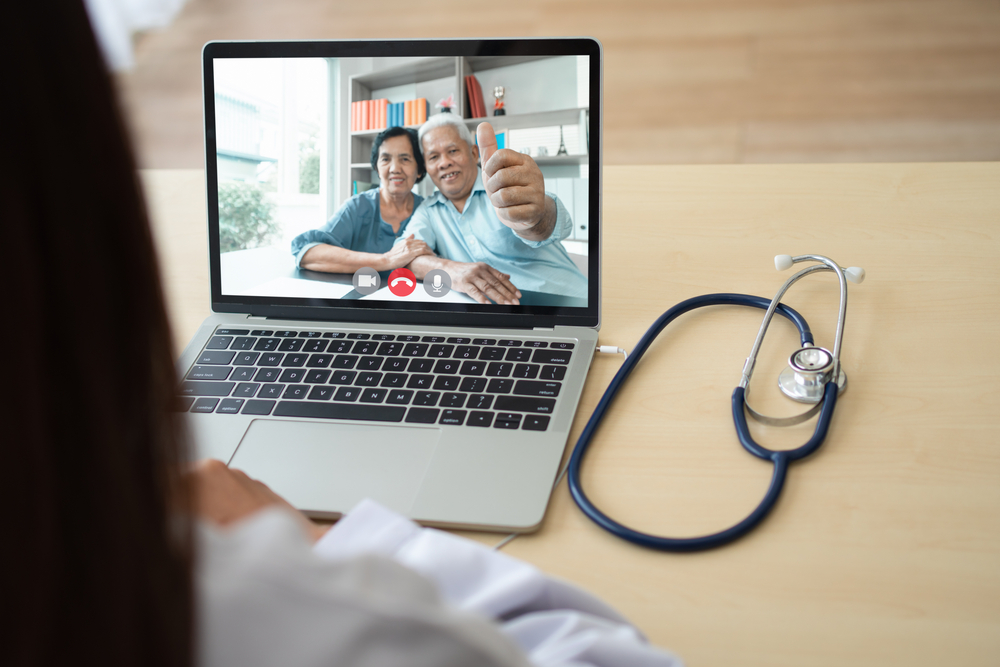The Future of Telemedicine in Indonesia: Bridging Gaps in Healthcare Access

Telemedicine has quickly grown as an essential tool for healthcare within the past years. Specifically, the healthcare access for Indonesia is a challenging problem due to the great number of islands inhabited by people and a high level of regional dispersion. A hot topic is how telemedicine offers solutions to approaching people where they are, and making healthcare services available in less serviced areas.
Increasing Accessibility for Remote Populations
Due to its geography, many residents in Indonesia, especially in rural areas, do not have proper access to healthcare centers. Telemedicine fills this void in that it allows patients to access healthcare information from home by using digital platforms. Patients obtain advice and diagnosis through teleconsultations thus increasing access without having to travel long distances to urban health facilities.
During COVID-19, telecommunication has enhanced healthcare delivery to an otherwise unreachable population (United Nations Development Programme, 2020). This increased ability for people to get medical help through their devices is a game-changer. It means that people in Indonesia, even in places where there aren’t enough doctors, can now get care without actually going to a hospital or clinic.
Cost Efficiency and Convenience for Patients
Indonesian healthcare can be expensive to some extent; more so for those who require to travel extensively. Research from The Journal of Multidisciplinary Healthcare in 2021 showed that remote healthcare via telemedicine helps to cut these expenditures because no transportation services are required, minimizing time off work (Salsabilla et al., 2021).
Moreover, the flexibility in seeking healthcare services from home itself makes the whole process much easier for patients. Delivery of telemedicine services has greatly reduced the cost of treatment and improved convenience for patients in Indonesia (Wijaya et al., 2022).
Addressing Healthcare Resource Shortages
The gap in medical care is broader in rural areas and underserved regions in Indonesia where healthcare workers are scarce. According to an article from Disaster Medicine and Public Health Preparedness (2024), it was explained that telemedicine helps doctors or specialists in big cities offer their expertise in those places. It also facilitates better interaction between different regions in the country by enhancing cooperation between healthcare workers to make the system better.

Photo by Tirachard Kumtanom on Shutterstock
However, this gap is not only bridged through telemedicine but also through digital health training which empowers healthcare workers in far-flung areas (Saputra, 2024). These two strategies, in turn, complement each other by providing access to the latest medical information and enhancing the competencies of healthcare workers across Indonesia.
Telemedicine enables continuous training of healthcare workers using e-learning platforms, particularly via asynchronous virtual modules that can be accessed anytime and anywhere.
Better Care of Chronic Diseases
Telemedicine reduces the chances of patients dropping out from the recommended treatment plan and enables the healthcare worker to spot problems at an early stage. It keeps people connected with care givers and can decrease future visits to the hospital, thus assuring better chronic disease management and prolonged life.
Tapping into Data for Better Healthcare Performance
The digital nature of telemedicine allows for health information to be gathered to support an understanding of the health needs of people in Indonesia. It allows patient data to be used more actively by healthcare workers, hence enabling them to monitor improvement and readjust their treatment plans where necessary.
Applications like Halodoc, Telemedicine RS/Clinic, Alodokter, Online Doctor Consultation, KlikDokter, Good Doctor, LinkSehat, and Lekasehat are examples of various telemedicine platforms in Indonesia provided by both the government and private companies.
Government Initiatives and Policy Support
One of the government initiatives to help people with telemedicine is the Temenin application, developed by the Ministry of Health (Kemenkes). This application can be accessed via the website, temenin.kemkes.go.id. and allows healthcare workers and patients to access radiology, ECG, ultrasound and medical consultation services.

Photo by TierneyMJ on Shutterstock
Telemedicine in Indonesia is not only supported by the government but has also seen significant growth through private sector initiatives. Telemedicine applications developed by private entities are capable of integrating medical consultation services with online training programs. This means that the health professionals can enhance their competencies through expert consultations, continuously refining their skills.
To ensure the safe and effective use of telemedicine, the government has issued Regulation of the Minister of Health No. 20 of 2019, which establishes guidelines for remote consultations between healthcare professionals and patients. The policy also ensures safe practices in telemedicine by maintaining confidentiality through obtaining patient consent, and by integrating the telemedicine services into the national healthcare system.
In addition, the government is responsible for providing supporting infrastructure, such as adequate internet and electricity access, as well as assisting in the training of healthcare professionals. This support not only encourages private sector investment in telemedicine but also increases public acceptance of digital healthcare services.
Enhancing E-Learning for Healthcare Workers
Telemedicine helps patients, but it also changes how healthcare workers are trained. Asynchronous e-learning lets learners study when it works for them, and that is key to the change. E-learning modules provide uniform training for everyone, ensuring equal access to education. This is especially beneficial for individuals in remote areas who cannot visit physical learning sites like schools or training centers.
Challenges and Future Prospects

Photo by PattyPhoto on Shutterstock
Telemedicine promises a great future but not without its challenges. According to a study in The Journal of Health Policy and Management, the issues facing telemedicine in Indonesia are: internet connectivity in rural areas, concerns about data security, and better digital literacy, to name a few. Nonetheless, many users find telemedicine a convenient and efficient way to receive healthcare (Adinda, et al., 2024).
Take the Next Step in Your Healthcare Career with Zafyre
To help healthcare professionals overcome these challenges and fully leverage the potential of telemedicine, Zafyre offers relevant training courses. Enroll now in our affordable, Ministry of Health-certified courses with international recognition. Gain essential skills in telemedicine, patient safety, and more. Whether you are a nurse, doctor, or healthcare professional, our flexible online programs ensure you can learn at your own pace without disrupting your work schedule. Enhance your expertise with trusted training solutions from Zafyre.
Register today!
References:
-
- Adinda, H. R., Syakurah, R. A., & Pariyana, P. (2024). User Satisfaction and Challenges in Telemedicine Services during the COVID-19 Pandemic in Indonesia: A Population-Based Analysis. Journal of Health Policy and Management, 09(02), 237–249. https://doi.org/10.26911/thejhpm.2024.09.02.09
- Annur, C. (2022, April 7). The Most Widely Used Telemedicine Services in Indonesia, What Are They? Databoks. https://databoks.katadata.co.id/layanan-konsumen-kesehatan/statistik/a42d36cd66cec74/layanan-telemedicine-yang-paling-banyak-digunakan-di-indonesia-apa-saja
- Ministry of Health of the Republic of Indonesia. (2019). Regulation of the Ministry of Health of the Republic of Indonesia No. 20 of 2019 concerning telemedicine services. https://peraturan.bpk.go.id/Details/138613/permenkes-no-20-tahun-2019
- Regulation: Minister of Health Regulation Number 20 of 2019 concerning the Implementation of Telemedicine Services Between Health Service Facilities [Regulasi: Permenkes Nomor 20 Tahun 2019 tentang Penyelenggaraan Pelayanan Telemedicine Antar Fasilitas Pelayanan Kesehatan]. (2019). Kebijakankesehatanindonesia.net. https://www.kebijakankesehatanindonesia.net/publikasi/arsip-pengantar/3938-regulasi-permenkes-nomor-20-tahun-2019-tentang-penyelenggaraan-pelayanan-telemedicine-antar-fasilitas-pelayanan-kesehatan
- Salsabilla, A., Azzahra, A. B., Syafitri, R. I., Supadmi, W., & Suwantika, A. A. (2021). Cost-Effectiveness of Telemedicine in Asia: A Scoping Review. Journal of Multidisciplinary Healthcare, 14, 3587–3596. https://doi.org/10.2147/JMDH.S332579
- Saputra, R. (2024). Telemedicine: Solutions and Challenges for Health Workers in Rural Indonesia in the Response to the COVID -19 Pandemic. Disaster Medicine and Public Health Preparedness, 18, 1–6. https://doi.org/10.1017/dmp.2024.122
- United Nations Development Programme. (2020). SDG Talks Vol. 12: Telemedicine: The Rise of Telehealth Services During COVID-19. https://www.undp.org/indonesia/news/sdg-talks-vol-12-telemedicine-rise-telehealth-services-during-covid-19
- Wijaya, J. H., Octavius, G. S., & Hwei, L. R. Y. (2022). A literature review of telemedicine in Indonesia: Past, present, and future prospective. Indonesian Journal of Health Administration (Jurnal Administrasi Kesehatan Indonesia), 10(2), 261-272. ttps://e-journal.unair.ac.id/JAKI/article/view/31256





